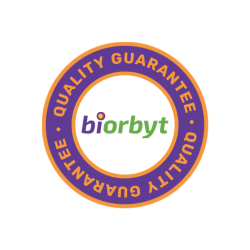You have no items in your shopping cart.
Cart summary

Cav1.2 antibody
Catalog Number: orb148163
| Catalog Number | orb148163 |
|---|---|
| Category | Antibodies |
| Description | Mouse monoclonal to CaV1 (HRP). 2. Ion channels are integral membrane proteins that help establish and control the small voltage gradient across the plasma membrane of living cells by allowing the flow of ions down their electrochemical gradient. They are present in the membranes that surround all biological cells because their main function is to regulate the flow of ions across this membrane. Whereas some ion channels permit the passage of ions based on charge, others conduct based on an ionic species, such as sodium or potassium. Furthermore, in some ion channels, the passage is governed by a gate which is controlled by chemical or electrical signals, temperature, or mechanical forces. There are a few main classifications of gated ion channels. There are voltage- gated ion channels, ligand- gated, other gating systems and finally those that are classified differently, having more exotic characteristics. The first are voltage- gated ion channels which open and close in response to membrane potential. These are then separated into sodium, calcium, potassium, proton, transient receptor, and cyclic nucleotide-gated channels; each of which is responsible for a unique role. Ligand-gated ion channels are also known as ionotropic receptors, and they open in response to specific ligand molecules binding to the extracellular domain of the receptor protein. The other gated classifications include activation and inactivation by second messengers, inward-rectifier potassium channels, calcium-activated potassium channels, two-pore-domain potassium channels, light-gated channels, mechano-sensitive ion channels and cyclic nucleotide-gated channels. Finally, the other classifications are based on less normal characteristics such as two-pore channels, and transient receptor potential channels. Specifically, Cav1. 2 is a cardiac L-type calcium channel, and is important for excitation and contraction of the heart. It may be associated with a variant of Long QT syndrome called Timothy's syndrome and also with Brugada syndrome. Some references also suggest it is related to bipolar disease as well.... |
| Species/Host | Mouse |
| Clonality | Monoclonal |
| Clone Number | S57 |
| Tested applications | AM, ICC, IHC, IP, WB |
| Reactivity | Hamster, Human, Mouse, Rat |
| Isotype | IgG1 |
| Immunogen | Fusion protein amino acids 1507-1733 (intracellular carboxyl terminus) of rabbit Cav1.2 |
| Concentration | 1 mg/ml |
| Dilution range | WB (1:1000), IHC (1:1000), ICC/IF (1:100), IP (1:200) |
| Conjugation | HRP |
| MW | 240kDa |
| Target | Cav1.2 |
| Entrez | 100101555 |
| UniProt ID | P15381 |
| NCBI | NP_001129994.1 |
| Storage | Conjugated antibodies should be stored at 4°C |
| Buffer/Preservatives | PBS pH 7.4, 50% glycerol, 0.09% sodium azide *Storage buffer may change when conjugated |
| Alternative names | CACH3 antibody, CACN4 antibody, CACNA 1D antibody, Read more... |
| Note | For research use only |
| Application notes | 1 µg/ml of SMC-300 was sufficient for detection of Cav1.2 in 10 µg of rat brain lysate by colorimetric immunoblot analysis using Goat anti-mouse IgG:HRP as the secondary antibody. |
| Expiration Date | 12 months from date of receipt. |
Cav1.2 Antibody [orb67390]
AM, ICC, IHC, IP, WB
Hamster, Human, Mouse, Rat
Mouse
Monoclonal
Unconjugated
100 μg
Submit a review
Filter by Rating
- 5 stars
- 4 stars
- 3 stars
- 2 stars
- 1 stars











